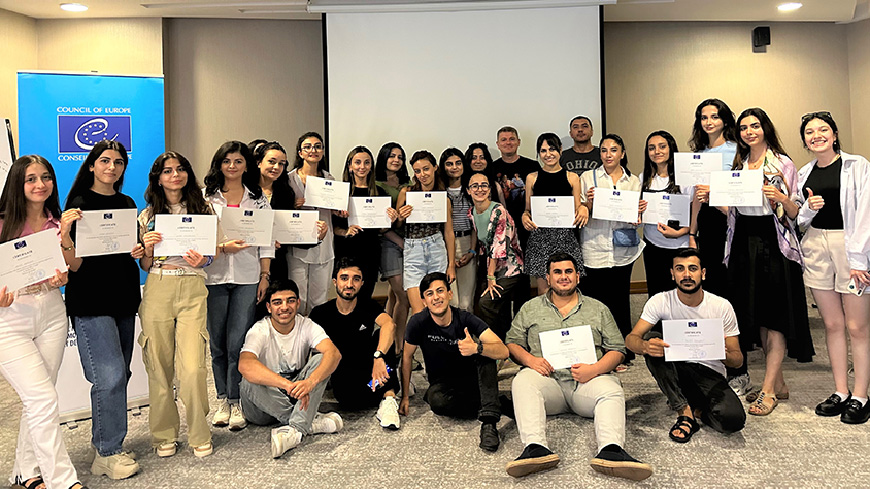In Azerbaijan, the Council of Europe has organised a three-day training programme to show journalist students how they can use the standards of the Organisation to improve the quality of journalism by analysing the accuracy of what they see and read online on television and in newspapers every day.
The event, which took place within the ongoing Council of Europe cooperation project “”Promoting Media Professionalism and Freedom of Information in Azerbaijan”, brought together 25 enthusiastic journalism students from four Azerbaijani universities—Azerbaijan University of Languages, Baku Slavic University, Baku State University, and Nakhchivan State University.
One of the attendees, Ali Yariyev, a journalism student from Nakhchivan State University, said: "This training programme has been an important learning opportunity for me. I now feel equipped to critically analyse and interpret the information I encounter online, which is a valuable skill in today's information-driven world."
The training focused on techniques to identify disinformation, misinformation and fake news as well as exploring practical methods for fact-checking and verification of information. The course also included sessions on media literacy for digital citizenship and digital privacy and security.
Mr. Seymur Kazimov, a media and information literacy expert from Azerbaijan who co-facilitated the training program, said "Given the absence of media literacy curricula in Azerbaijani universities’ journalism faculties, these training programmes focusing on media literacy and countering disinformation provide a unique opportunity for future Azerbaijani journalists to acquire the skills and knowledge needed to effectively produce and disseminate news and media stories."



